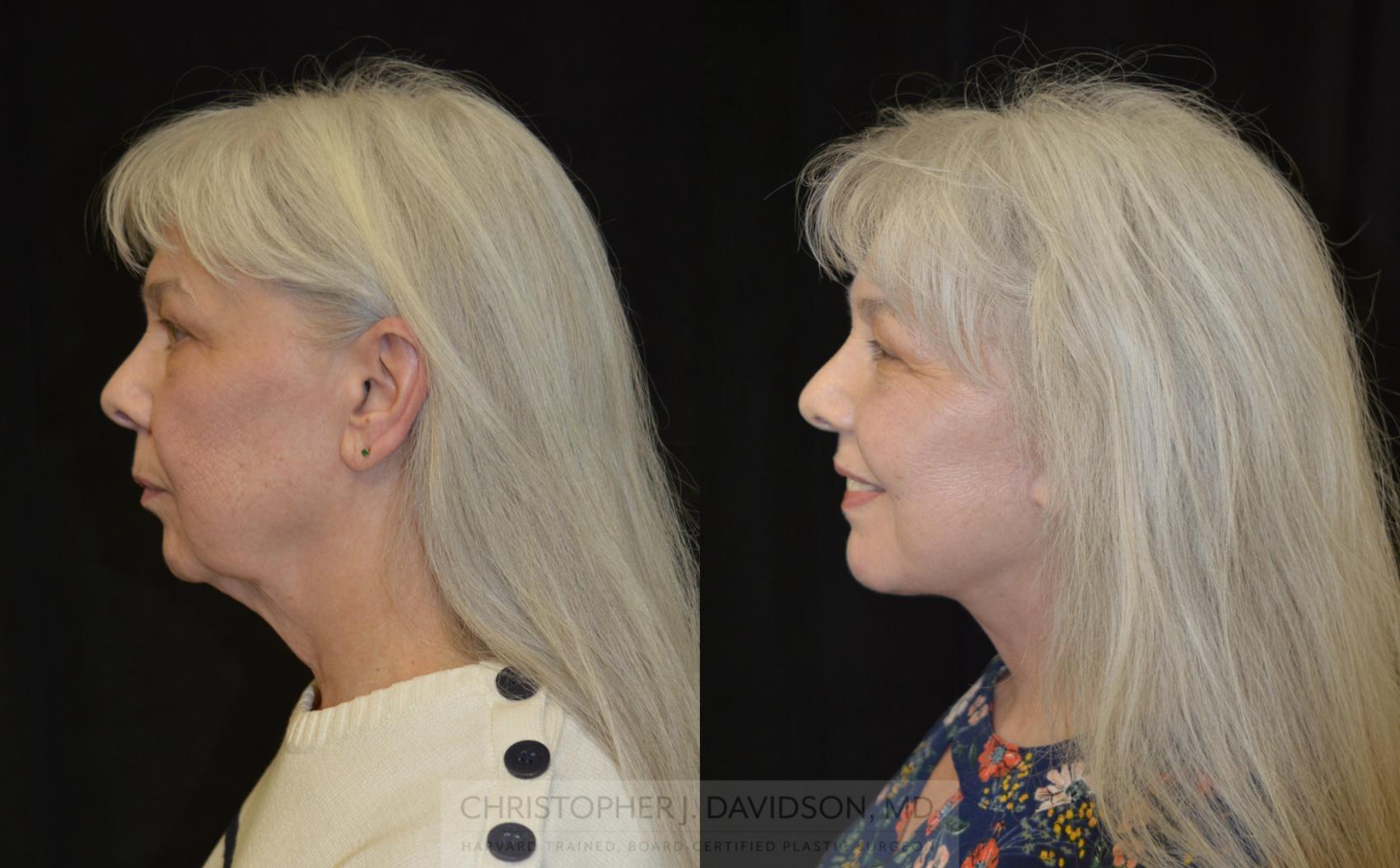While getting enough quality rest is an important part of the recuperation process after any surgery, the way you sleep after facial surgery can be just as important. When asking questions about facelift recovery, most people want to know how long they will need to take off from work or what activity limitations they’ll have. They rarely ask me, “How do you sleep after a facelift?”
However, sleep is the unsung hero of the recovery process. If you’re considering any facial plastic surgery, such as a neck lift or facelift, I want you to be prepared for every element of the recovery process—including how to get a good night’s rest.
The Importance of Sleep
As we all know, sleep is vital to maintaining overall health and well-being. When we sleep, our cells regenerate, and our brain chemicals “refill,” giving us a sense of refreshed clarity to get us through the next day.
The benefits of sleep increase substantially after surgery, when your body is actively using its resources to heal itself. Quality sleep can help curb inflammation and improve blood flow between tissues and cells, helping to heal your incisions and affected tissues. Additionally, because a rested brain is more resistant to pain stimuli, sleep can function as a low-level pain medication.
How To Sleep After a Facelift
During the initial healing process, it’s imperative to stay on your back with your head elevated throughout the night. Here are a few helpful tips:
Practice Sleeping on Your Back Before Surgery
For people who are used to sleeping on their abdomens or sides, it can be challenging to start sleeping on their backs. If you think making the transition to back sleeping might be a challenge, I recommend adjusting your habits at least a couple of weeks before surgery. This helps you adjust to the position and determine the techniques that work for you.
Sleep in a Recliner
Many of my facial rejuvenation patients find that sleeping in a recliner is effective, especially in the first few days after surgery.
Use Extra Pillows
Using a firm mattress, keeping a pillow or 2 under your knees, and using extra pillows around your body to prevent you from rolling over in the night can also do wonders for keeping you comfortable.
Most patients say their results are well worth a few weeks of back-sleeping. You can see some of my patients’ transformations in the before and after photos below:
Benefits of Sleeping With Your Head Elevated
Sleeping with your head elevated helps in 3 distinct ways:
Reduces swelling: After facial surgery, head elevation decreases the amount of fluid that accumulates near your incisions, thereby reducing swelling. Diminished swelling can improve your comfort and hasten the healing process, as well as allow you to see your results sooner. You can learn more about post-surgical swelling and other facelift recovery experiences in our related blog post.
Protects incisions: Sleeping on your stomach or side can cause friction between your face and your pillow, creating tension on your incisions and potentially causing complications related to healing.
Maintains results: Finally, sleeping on your back is just good practice and will help maintain your new aesthetic look. Contorting your face against a pillow night after night can cause wrinkles and creases to develop. Outsmart this sneaky element of aging by getting into the habit of sleeping on your back when you can.
By treating yourself to the gift of great sleep after your surgery, you can reap the rewards of a comfortable recuperation and lasting, beautiful results. Be sure to ask your surgeon if you have any questions about the benefits of sleep after facial surgery.
If you’re considering facial plastic surgery, request a consultation using our online form or call my office at (781) 237-7700 to schedule an appointment.
This post was originally published in March 2018. It was updated and republished in May 2023.





I had no idea that sleeping with you head elevated after a facelift could help decrease the amount of fluids that accumulate near your incisions. My aunt has been wanting to get a facelift, but she hasn’t been sure what to expect. I’ll share this article with her, so she can learn more.